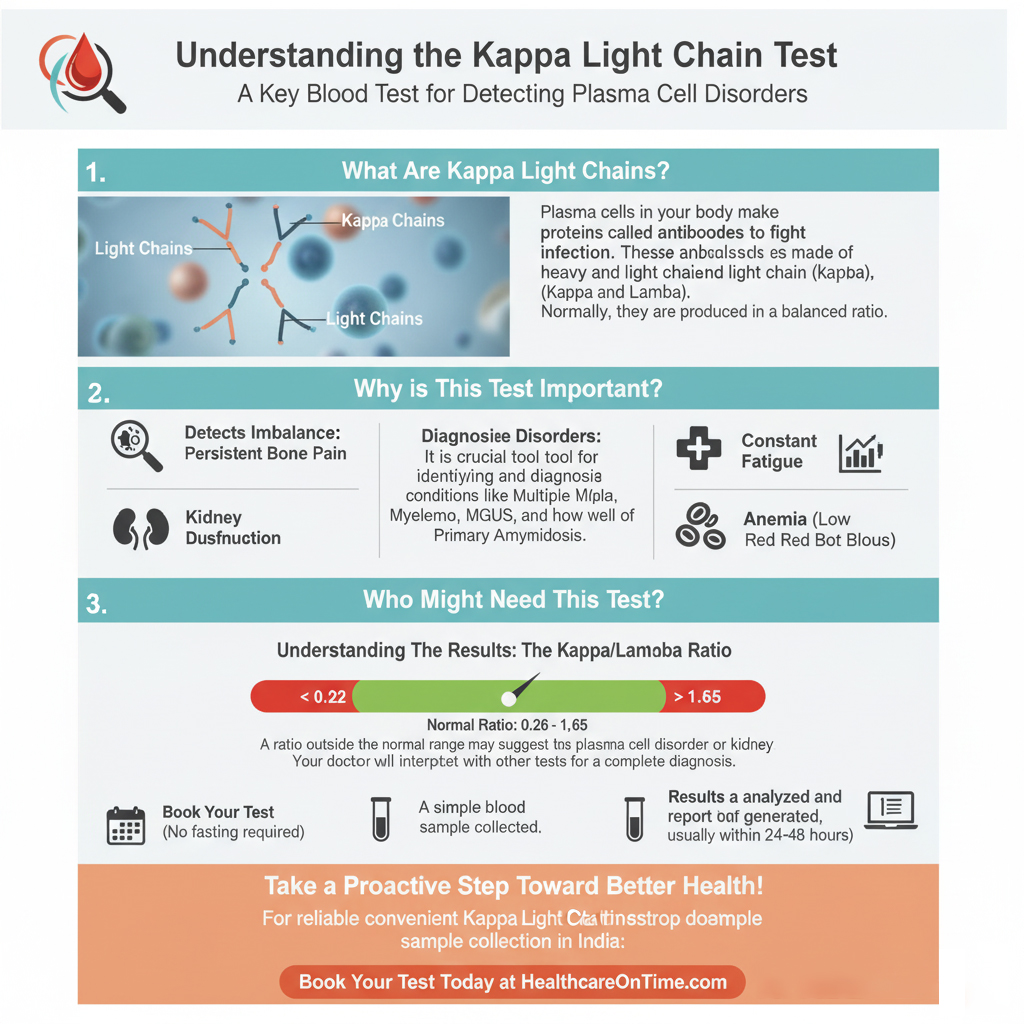
Kappa light chain Test and its Function
The Kappa Light Chain Test is a specialized blood test that measures the concentration of free kappa light chains—small protein components of antibodies produced by plasma cells. These light chains typically pair with heavy chains to form immunoglobulins, which help the immune system fight infections. However, when produced in excess or in isolation, free kappa chains may indicate abnormal plasma cell activity. This test plays a critical role in diagnosing and monitoring plasma cell disorders, such as multiple myeloma, monoclonal gammopathy, and amyloidosis, by evaluating both the absolute levels of kappa chains and their ratio to lambda chains.
Conditions that may require Kappa light chain Test
Healthcare providers may recommend a Kappa Light Chain Test when symptoms suggest a plasma cell disorder or related condition. These include unexplained bone pain, anemia, recurrent infections, kidney dysfunction, or abnormal calcium levels. The test is commonly used to detect and monitor diseases such as multiple myeloma, monoclonal gammopathy of undetermined significance (MGUS), primary amyloidosis, Waldenström macroglobulinemia, and solitary plasmacytoma. It is also useful in evaluating disease progression and treatment response in patients with known plasma cell abnormalities.
Kappa light chain Test Procedure
The test involves a simple blood draw, typically performed by a trained phlebotomist. No fasting or special preparation is usually required unless advised by a physician. A sample of blood is collected from a vein in the arm and sent to a laboratory for analysis. The lab measures the levels of free kappa and lambda light chains and calculates the kappa/lambda ratio. Results are generally available within 24–48 hours, depending on the testing facility.
Interpreting Kappa light chain Test Results
Normal reference ranges for kappa light chains typically fall between 3.3 to 19.4 mg/L, with a kappa/lambda ratio of 0.26 to 1.65. Elevated kappa levels or a skewed ratio may indicate a monoclonal plasma cell disorder, such as multiple myeloma or MGUS. However, abnormal results can also arise from kidney disease, chronic inflammation, or immune system dysfunction. Interpretation should always consider clinical symptoms and other diagnostic tests, such as serum protein electrophoresis or immunofixation. In cases of significant deviation, further hematological evaluation is recommended.
More Related Tests
Why To Book with HealthCareOnTime

17 Crores+ Samples Processed

World Class Technology Labs

25+ Years of Trust & Experience

Free Home Collection
FAQs Around Kappa light chain Test
How much does Kappa light chain Test cost?
The Kappa light chain Test cost is Rs.600, although it is now available for Rs.585 because of the offer.










